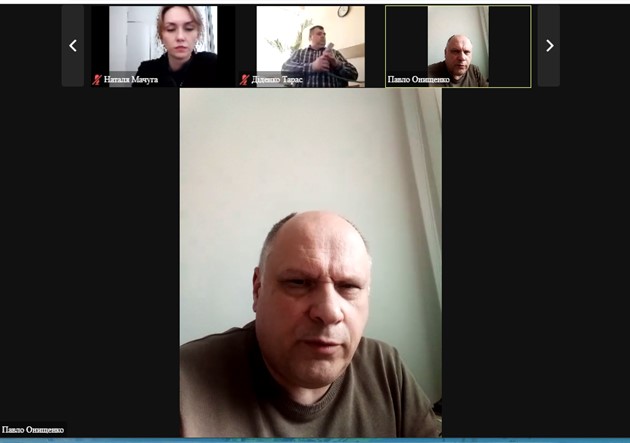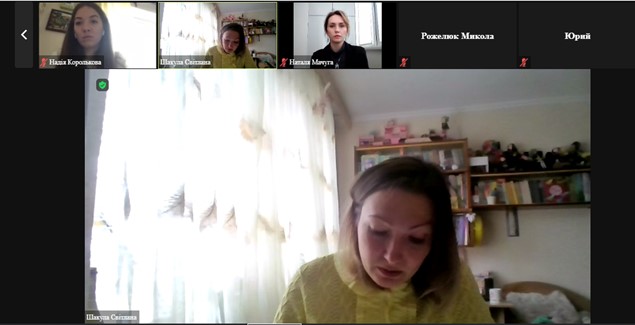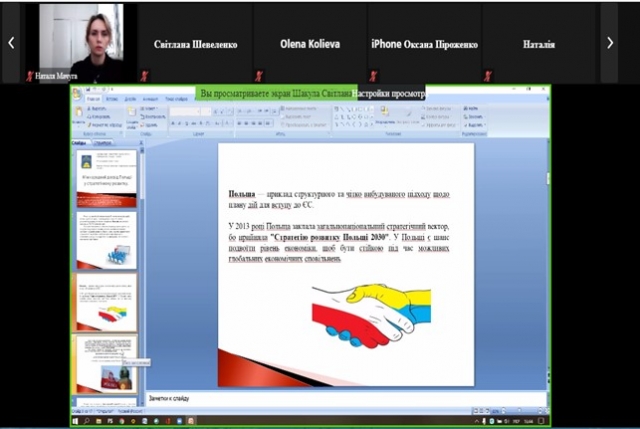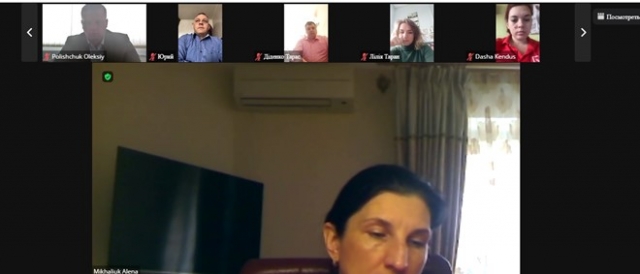Управління регіональними стратегіями: лекція – конференція
З метою набуття професійних компетенцій при засвоєнні дисципліни «Технології стратегування в публічному управлінні» на кафедрі публічного управління та менеджменту інноваційної діяльності проведено лекцію–конференцію на тему: «Стратегічне планування регіонального розвитку» для здобувачів вищої освіти заочної форми навчання ОС «Магістр», які навчаються на освітній програмі «Публічне управління та адміністрування».
Розпочинаючи лекцію-конференцію, д.е.н., професор Ольга Витвицька зазначила тему лекції, план і наголосила що в сучасному розумінні слово «стратегія» трактується як основні шляхи, практичні кроки і механізми втілення ідеї чи теорії у життя. Сьогоднішні учасники лекції не тільки слухачі магістерської програми «Публічне управління та адміністрування», а також представники державних установ, приватних структур.
Заступник директора департаменту стратегічного планування та макроекономічного прогнозування Міністерства розвитку економіки, торгівлі і сільського господарства Доброханська Наталя, зазначила надзвичайну актуальність сьогоднішньої теми – адже наразі реформування системи стратегічного планування на загальнодержавному і регіональному рівнях є «фокусом» дискусій в Уряді і на міжміністерському рівні.
Напрацювання ведуться Мінекономіки і Мінрегіоном з залученням Мінфіну, депутатського корпусу, провідних експертів. Це питання є надважливим в контексті підвищення ефективності як публічного управління, так і публічних фінансів, в тому числі у зв’язку з переходом до середньострокового бюджетного планування. Тому з метою розбудови цілісної системи державного стратегічного планування Мінекономіки розробило проект Закону України «Про державне стратегічне планування». Цей проект напрацьовано на основі вивчення найкращого світового досвіду стратегування та ураховуючи вітчизняні особливості врядування, національної ментальності, існуючі конституційні рамки.
Начальник управління економічної стратегії Департаменту стратегічного планування та макроекономічного прогнозування Міністерства розвитку економіки, торгівлі і сільського господарства Павло Онищенко відмітив що національна економічна стратегія України до 2030 року, затверджена Урядом на початку березня п.р., містить розділ «Регіональний розвиток», який визначає 3 стратегічні цілі: забезпечення ефективного планування регіонального розвитку; підвищення інституційної спроможності місцевих органів виконавчої влади, органів місцевого самоврядування та агенцій регіонального розвитку для ефективного забезпечення розвитку регіонів і територіальних громад; забезпечення ефективного фінансування регіонального розвитку.

Тому питання методів стратегування, цілепокладання, цілевизначення і планування є для нас наразі надзвичайно актуальними, адже імплементація передбачає затвердження необхідних методик для документів всіх рівнів та проведення навчальних програм для учасників цих процесів.
Про сучасні рішення для підвищення ефективності роботи муніципалітетів шляхом впровадження геоінформаційних технологій розповів керівник MagneticOne Municipal Technologies Руслан Самчишин.

Про запровадження кращої світової практики просторового планування територій та населених пунктів (досвід Польші) розповіла Світлана Шакула.


Про принцип цілісності, якого потрібно дотримуватись шляхом складання взаємоузгоджених стратегічних, програмних документів та прогнозів економічного і соціального розвитку регіонів розглянула Олена Михалюк.

Питання формування та реалізації стратегій регіонального розвитку в Україні обґрунтували Наталя Мачуга, Надія Королькова та ін.



Лекція-конференція викликала жваву дискусію здобувачами другого (магістерського) рівня освіти спеціальності 281 «Публічне управління та адміністрування».
Всі присутні відмітили результативність лекції-конференції
Бажаємо здоровя та успішної реалізації стратегій !!!
Катерина Обиход,
асистент кафедри публічного управління
та менеджменту інноваційної діяльності
